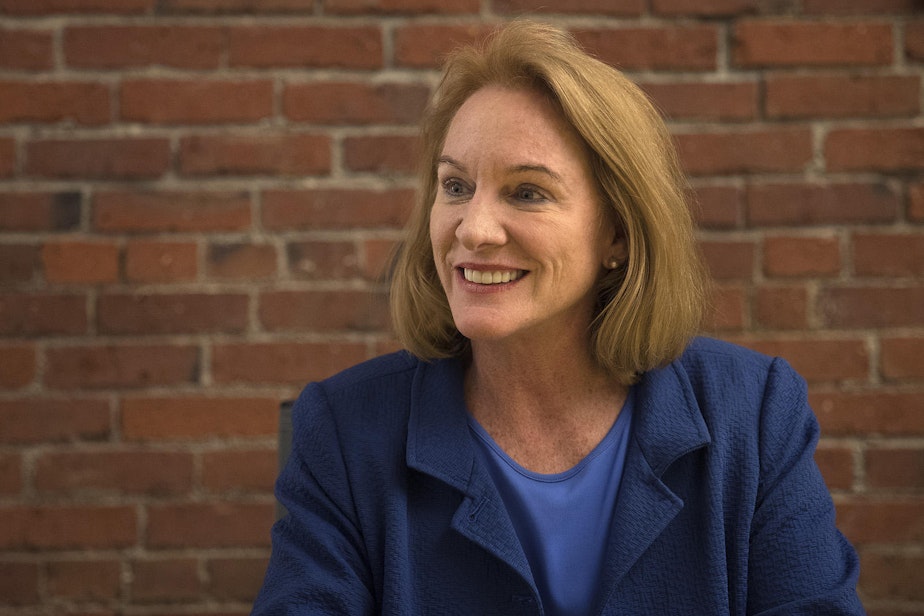Temporary no more: Durkan's budget makes homeless spending permanent

Seattle Mayor Jenny Durkan’s new budget proposal takes what was once temporary spending on homelessness and renders it permanent.
Durkan’s proposed budget earmarks $89.5 million overall to tackle the homelessness crisis in 2019. That’s a slight increase over spending this year, which totals $86.7 million.
Until this budget, much of the city’s spending on homelessness was unsecured, paid for by a tax revenue floating in from the city’s construction boom.
“I think it’s a pretty significant thing that there was many millions of dollars of services funded through a one-time source with no ongoing revenue,” Durkan told reporters ahead of her budget speech. “We had to find the revenue in this budget if we wanted to provide those services at all.”
The proposed budget chisels $49 million in budget cuts across city departments. It also profits more than expected from the new so-called soda tax — $22 million instead of $15 million.
Durkan increased shelter capacity this year, adding about 500 extra shelter beds to the system.
“A number of people asked, ‘Well, if you don’t have new taxes, are you just going to have to stop that?’ The answer is no,” Durkan said Monday. “What we did is we went in the budget and we re-prioritized spending.”
The proposed spending on homelessness in 2019 would cover roughly 2,300 emergency shelter beds, additional neighborhood outreach workers, a safe parking lot pilot program for people living in their vehicles, extra case management for the city’s tiny house villages, and a roughly 2 percent wage increase for service providers.
Durkan said no new taxes would be raised to cover homelessness spending in 2019.
The city would have had more money to work with had the head tax on large businesses remained in place. But the tax on employment proved controversial, both to the businesses targeted and to voters: the City Council repealed the tax after seeing poll results.
Durkan’s proposed budget is the first in years to spend only what revenue is expected to come in, according to Seattle budget director Ben Noble. That’s important, he said, because tax revenue from the construction boom will start to level off.
“We’re not anticipating revenue growth significantly above inflation going forward,” he said. “So if the city is going to significantly increase homelessness spending beyond current levels, that will have to happen either through, again, redirecting resources from other current spending or some other as-yet unidentified new revenue source.”




